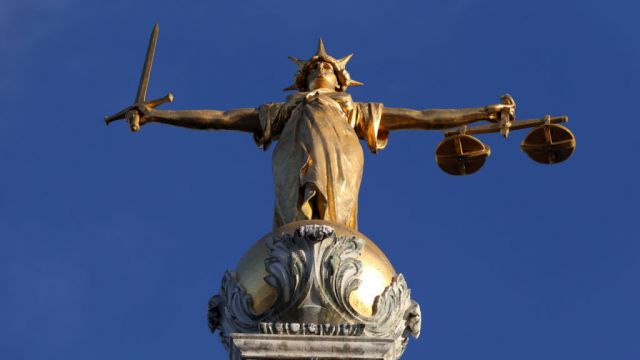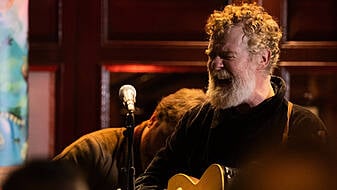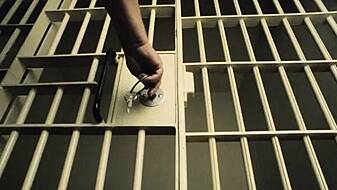A garda interview with a young man jailed for murdering a homeless man with a disability should not have been allowed into evidence because the conditions were unfair, the Court of Appeal (CoA) has been told.
Lawyers for Philip Dunbar (22) told the appeal court he made admissions as a "child under pressure" and said they should have been allowed to argue his responsibility for killing 23-year-old Adam 'Floater' Muldoon was diminished due a "mental disorder" caused by chronic drug abuse.
Counsel added that the gathering of CCTV footage used in the trial breached privacy rights.
Dunbar was sentenced to life imprisonment for the murder of Mr Muldoon at Butler Park, Jobstown Park, Tallaght, Dublin 24, on June 22nd or 23rd, 2018. Dunbar was 17-years-old when he stabbed Mr Muldoon 183 times in an unprovoked attack with a fold-up knife.
The trial heard that after the murder, Dunbar went to a friend's house where he boasted that he had "slaughtered Floater" and "put him out of his misery" as he "begged for his life".
He was found guilty of murder by a unanimous jury verdict at the Central Criminal Court before Mr Justice Paul McDermott.
At the CoA on Friday, Giollaíosa Ó Lideadha SC, for Dunbar, said his client made an admission to gardaí of having "flashback" memories of stabbing Mr Muldoon because he was a "child under pressure" in the interview.
Mr Ó Lideadha said Dunbar went voluntarily to Tallaght Garda station with his grandmother and a lawyer after the murder and told gardaí he "knew" he had killed Mr Muldoon but had no memory of it.
Mr Ó Lideadha said his client was interviewed for two-and-a-half hours and expressed a desire to gardaí to end the interview session.
Counsel said he was not making "a case for banging tables", but he was "making a case for a child, who clearly had issues, and who clearly wanted it to be over".
Flashbacks
Gardaí questioned Dunbar about his memory of the night but had been told for the majority of the interview by Dunbar that he had no memory due to "blacking out" and that he only had "flashbacks" of the night.
When Dunbar told the interviewing garda that he wanted the session to end, the Garda station's "member in charge" was contacted and said the interview should be "wrapped up". However, the interviewing guard continued to ask about his client's flashbacks, Mr Ó Lideadha said.
In the final stages of the interview, after granting gardaí a final "five minutes", Dunbar told gardaí that his flashbacks were of stabbing Mr Muldoon.
Mr Justice George Birmingham said that "wrapping something up" could be more of an "invitation to marshal your closing arguments" and that it did not necessarily mean to finish "mid-sentence".
Dunbar's solicitor, who was present in the interview room, intervened over the length of the session and said Dunbar was a young person who had not eaten in a room that was "very hot", Mr Ó Lideadha said.
Mr Justice John Edwards said Dunbar exhibited "impatience, but that is way short of his will being overborne or oppressed".
"Even if a child is impatient, he is not entitled for it to be over. He might be disappointed it hasn't ended, but it's not unfair and it's not illegal. Gardaí have a job to do, too," the judge said.
Mr Justice Edwards asked Mr Ó Lideadha, "Are you saying he would not have made the admission but for the fact that it went on so long?", to which counsel replied yes.
"Then you are saying it was oppression," Mr Justice Edwards said.
"It's unfairness, and that can be a distinct ground. You don't have to have oppression," Mr Ó Lideadha said, adding that special considerations had to be applied to child interviews regarding "dignity, vulnerability and maturity".
Ms Justice Isobel Kennedy asked Mr Ó Lideadha if he thought his client was "worn down by the process".
"Exactly, yes," counsel said, submitting that his client believed he "had to say he had flashbacks to get out of this", which amounted to an "unacceptable unfairness".
However, Mr Justice Birmingham said "it was not a gotcha moment".
"He had been saying the flashbacks were not of the stabbing and then said the flashbacks were of the stabbing. That's what they wanted and that's what they got," Mr Ó Lideadha argued.
Mental disorder
Counsel for the State, Anne Marie Lawlor SC, said much of the appellant's case was that expert medical evidence is not needed to be put before the jury to prove a mental disorder substantial enough to establish diminished responsibility on Dunbar's part.
Counsel said she disagreed with the mental disorder submission and added that expert medical evidence had been put before the jury by the defence at trial, when consultant psychiatrist Dr Brenda Wright said that, in her opinion, Dunbar did not have a mental disorder at the time of the murder.
Ms Lawlor said the legislation on establishing grounds for diminished responsibility leading to a manslaughter verdict was "interlinked and dependent" on legislation for a defence based on grounds of insanity which specifically requires a consultant psychologist's expert opinion.
Ms Lawlor said the admissibility of a Garda memo of the interview in question related to only "four or five" minutes of the two-and-a-half hour interview.
Counsel said the interview was conducted in a "very careful and responsible" manner, in the company of Dunbar's solicitor and his grandmother.

Ms Lawlor added the interview was "wrapped up" minutes after the member in charge said to do so and that neither Dunbar's solicitor nor grandmother were of the view that it should be immediately "guillotined".
She said Dunbar was "very well capable of expressing himself in a voluntary fashion" and that to suggest the appellant's mental capacity was in a state of oppression was "simply not borne out".
Regarding CCTV footage showing Dunbar moving to and from the park on the night and his movements the next day, Ms Lawlor said there was consent from homeowners and that data protection had been complied with by gardaí who lawfully harvested the footage.
Mr Justice Birmingham said the court would reserve its judgement in the matter.







